|
|
Organizers
Gulf
Organization for Industrial Consulting
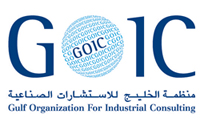
Gulf
Organization for Industrial Consulting, GOIC, was
established in 1976 by the member states of GCC to
become the main catalyst and knowledge-hub for
industrial investment and development in the region.
GOIC is based in Qatar, and operates consultancy
services in all GCC member states. Besides the
consultancy services on investment opportunities and
industrial reviews, GOIC is maintaining a unique
industrial database and is fully engaged in the capacity
building activities in the GCC member states’ industry
by organizing trainings, seminars, capacity development
activities and the annual GCC-EU Industrial Forum and
the bi-annual GCC Industrialists’ Conference.
Since its
inception, the organization’s advisory role was
fundamental in the industrial development of the region.
The organization played an influential part in
identifying and introducing new industries to the region
as well as determining synergies for the existing ones.
GOIC has grown to be the unrivalled source of market
intelligence and knowledge of the industrial environment
within the GCC, and the advisory institution by
excellence for GCC governments, chambers of industry,
private investors and financiers across the GCC region.
------------------------------------------------
Co-Organizers
Ministry for Energy & Industry
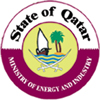 Industrial
development play a key role in adoption and assimilation
of modern technologies for the welfare and national
pride of our country. Industrial
development play a key role in adoption and assimilation
of modern technologies for the welfare and national
pride of our country.
Qatar has, ever since the sixties carefully prepared and
successfully executed it ambitious plans for the
development of the industry.
Under the wide leadership of H.H. Sheikh Hamad Bin
Khalifa Al Thani, the Emir of the State of Qatar, H.E.
Sheikh Tamim Bin Hamad Al Thani, the Heir Apparent,
record achievements have been made in an astonishingly
accelerated pace.
Oil revenues have been optimally employed in the laying
out of solid foundations for the development of oil and
gas and other basic industries as modern infrastructures
capable of servicing national industries and future
challenges.
Motivated by market driven economy, the State of Qatar
assigns pivotal role to the private sector in the
overall development process. To this end, the State
provides a string of generous incentives aimed at
encouraging active and effective participation of the
private sector. New laws and regulations establishing a
single point authority for the award of licenses and
incentives were affected in endeavor to avoid the once
lengthy, time-consuming procedures and provide better
investment climate for local and foreign investors.
The political stability and the excellent economic
performances of the State have increased the inflow of
foreign direct investments into the national economy. A
glimpse of foreign component in the investment capital
of existing and upcoming industries provides evidence to
the credibility and transparency of the Qatar economy at
the regional and international levels.
With the timely and efficient execution of massive
projects based in the north Gas Field, the State of
Qatar will further consolidate its economic positions
and emerge as a reliable long term supplier of clean
energy and new fuels and petrochemicals to the world at
large.
------------------------------------------------
Ministry of Business and Trade in the State of Qatar
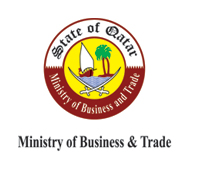 The
Ministry of Business and Trade in the State of Qatar
attaches special significance and speeds up its efforts
to activate the economic activities in all sectors,
laying down foundations for economic freedom, fair,
transparent competitive capability and economic openness
and enhancing international cooperation. The
Ministry of Business and Trade in the State of Qatar
attaches special significance and speeds up its efforts
to activate the economic activities in all sectors,
laying down foundations for economic freedom, fair,
transparent competitive capability and economic openness
and enhancing international cooperation.
The Ministry is constantly keen to provide a proper
investment climate and solid base for attracting local
and foreign capitals without any restrictions, to win
the trust of investors in Qatar’s economy.
The Ministry also seeks to encourage the Qatari private
sector and extends its efforts to remove obstacles
facing this sector by conducting feasibility studies and
facilitating the procedures of exporting local products
and company registration, enhancing financing market,
developing insurance services and protecting
intellectual property rights, trademarks and patent of
innovation.
It also develops schedule for participation in
international exhibitions to help promote Qatari
products and strengthen economic relations between the
State of Qatar and other countries.
The Ministry also prepares internal trade-related laws
and legislations, supervises the commercial and economic
professions in the country and sign regional and
international economic and commercial agreements with
other countries as well as economic cooperation
agreements.
------------------------------------------------
The Cooperation Council for the Arab States of the Gulf (GCC)
 GCC Member States are the United Arab Emirates, the Kingdom of Bahrain, the Kingdom of Saudi Arabia, the Sultanate of Oman, the State of Qatar and the State of Kuwait. The Cooperation Council was established on May 25th 1981, which was based in the city of Riyadh. GCC Member States are the United Arab Emirates, the Kingdom of Bahrain, the Kingdom of Saudi Arabia, the Sultanate of Oman, the State of Qatar and the State of Kuwait. The Cooperation Council was established on May 25th 1981, which was based in the city of Riyadh.
Objectives of the Cooperation Council are to effect coordination, integration and interconnection between Member States in all areas in order to achieve unity between them, deepen and strengthen links and areas of cooperation between their peoples, and to formulate similar regulations and stimulate scientific and technological progress in the fields of industry, mining, agriculture, water and animal resources; and to establish joint ventures and encourage cooperation by private sector.
The organizational structure of the Cooperation Council consists of the Supreme Council, the Consultative Commission, the Ministerial Council, the Dispute Settlement Commission and the Secretariat-General.
The Unified Economic Agreement between Member States was signed in 1981, which was later updated and revised in 2001. Member States have agreed on taking several steps in order to achieve integration between them. A Free Trade Area was established in 1983, followed by the Customs Union in January 2003, then the GCC Common Market that was launched in January 1st 2008. In December 2008, the Supreme Council adopted the agreement establishing the Monetary Union and the by-law of the Monetary Council leading to the subsequent setting up of the Monetary Union and introducing the GCC Single Currency.
------------------------------------------
Federation
of the Gulf Cooperation Council Chambers (FGCCC)
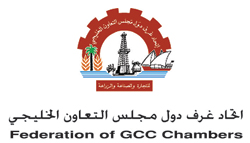
The idea
of establishing a federation to comprise the chambers of
commerce, industry and agriculture in the Gulf Arab
states which share similar economic conditions,
flourished from a growing sense of the need to affirm
the ties of brotherhood, unity of purpose and destiny
and the need to support the steps taken to achieve
economic cooperation between the Gulf states.
The preliminary meetings and communication between the
chambers of commerce, industry, agriculture, and their
federations in the Gulf Arab states led to the holding
of the first economic development conference of the
Arabian Gulf chambers in Jeddah, Kingdom of Saudi Arabia
during 16 to 20 October 1976 to discuss ways of economic
cooperation in all fields between the citizens of the
Arabian Gulf states and the role that the private sector
can play in this regard. This conference was attended by
the federations and chambers of commerce and industry in
the United Arab Emirates, Kingdom of Bahrain, Kingdom of
Saudi Arabia, Sultanate of Oman, State of Qatar and the
State of Kuwait and the Republic of Iraq.
The discussions at the Conference resulted in the
issuance of a number of resolutions and recommendations,
the most important of which were the establishment of a
federation to comprise the chambers of commerce,
industry and agriculture of the Arab Gulf States based
in Dammam, Kingdom of Saudi Arabia and the setting up of
a committee comprising the directors of the federations
and chambers that attended the conference to prepare a
draft constitution for the federation and present it to
the Second Conference which was scheduled to be held in
the State of Kuwait.
At the Second Conference of the Chambers of Commerce,
Industry and Agriculture of the Gulf Arab states held in
the State of Kuwait on 14 October 1979, the constitution
of the Federation of the Gulf Chambers was approved and
the establishment of the Federation was declared. The
constitution of the Federation was signed by all the
heads and members of the federations and chambers of the
Gulf Arab states participating in this meeting and as a
result, the federations and chambers of the United Arab
Emirates, Kingdom of Bahrain, Kingdom of Saudi Arabia,
Republic of Iraq, Sultanate of Oman, State of Qatar and
State of Kuwait became members of the Federation
Council. After the invasion of the State of Kuwait by
Iraq on 2 August 1990, the membership of the Republic of
Iraq was terminated and the name of the Federation was
changed to the Federation of the Gulf Cooperation
Council Chambers (FGCCC).
------------------------------------------------
Qatar
Chamber of Commerce & Industry
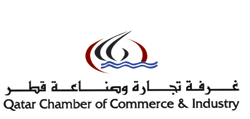
Qatar
Chamber of Commerce & Industry is one of the oldest
Chambers of Commerce in the GCC Countries. Having been
established in 1963, it used to operate within the
structure of Government agencies until the promulgation
of statute No. (11) Of 1990 which empowered the Chamber
to operate independently. This enabled the Qatar Chamber
of Commerce & Industry to exercise a wide range of
activities commensurate with national, regional and
international developments and serve the commercial,
industrial and agricultural interests of its
participants in the private sector.
------------------------------------------------
•
|









